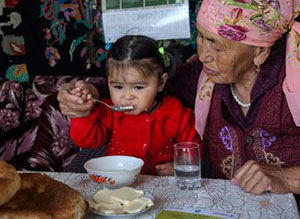Combining Health and Agriculture Formative Research to Improve Dietary Diversity
In Sierra Leone, SPRING tested integrated social and behavior change (SBC) approaches that can improve nutrition-related household practices and influence agriculture value chains. The goal was to increase access to diverse, nutritious foods among 1,000-day households (those with pregnant or lactating women or children under two years of age).
We conducted formative research to understand consumption of and access to fish and pumpkin. We chose these two nutrient-rich foods because they—
